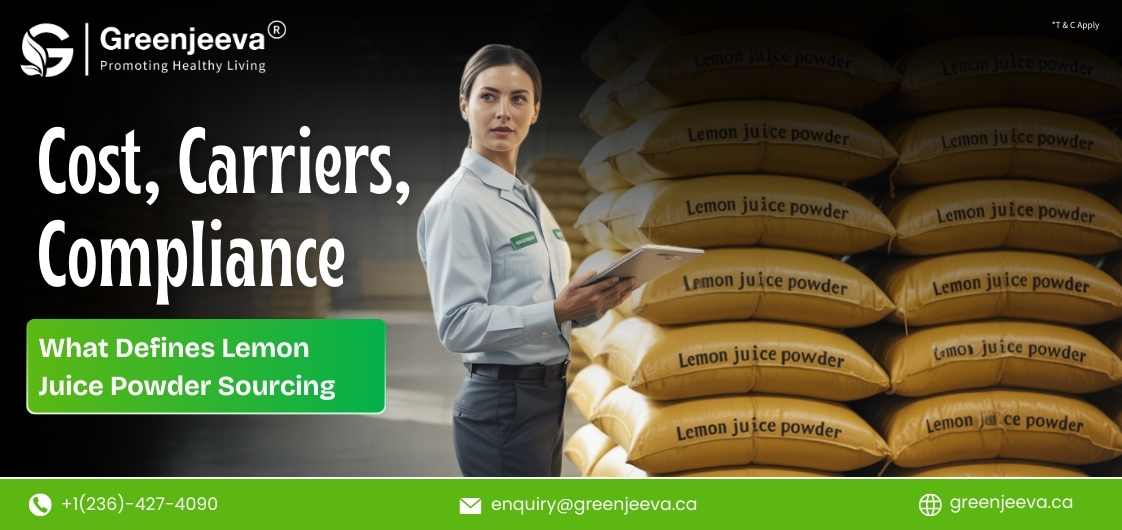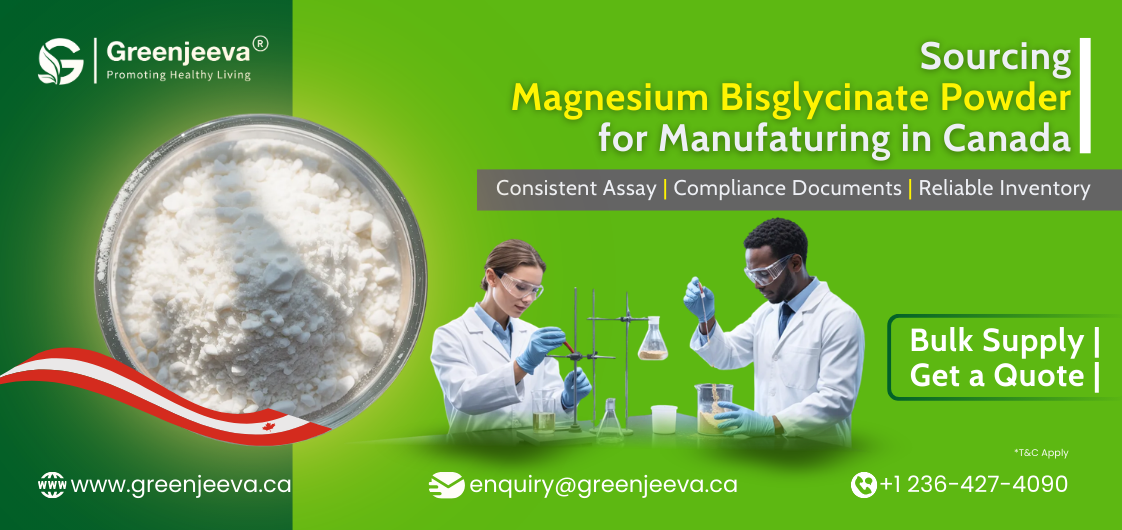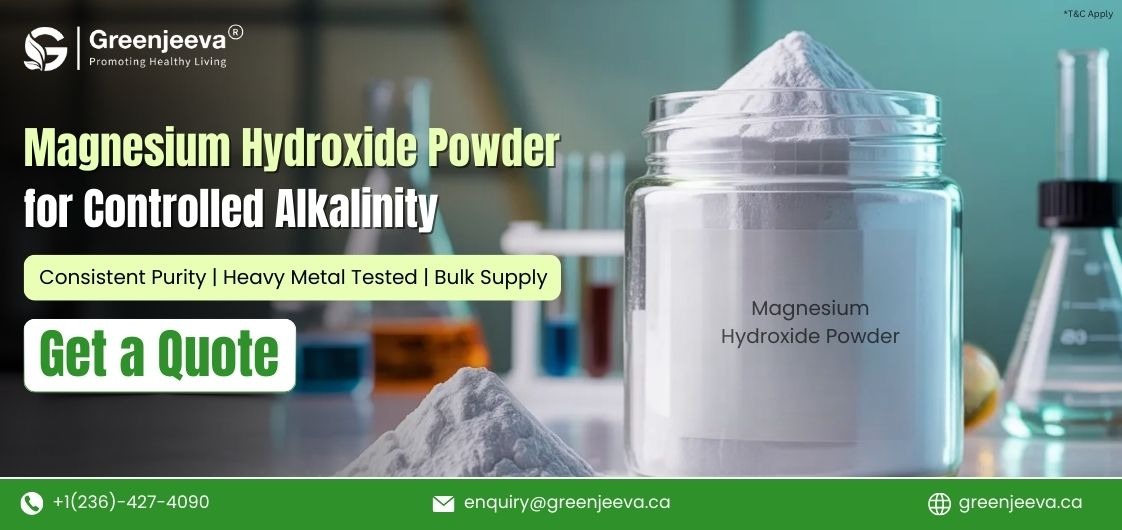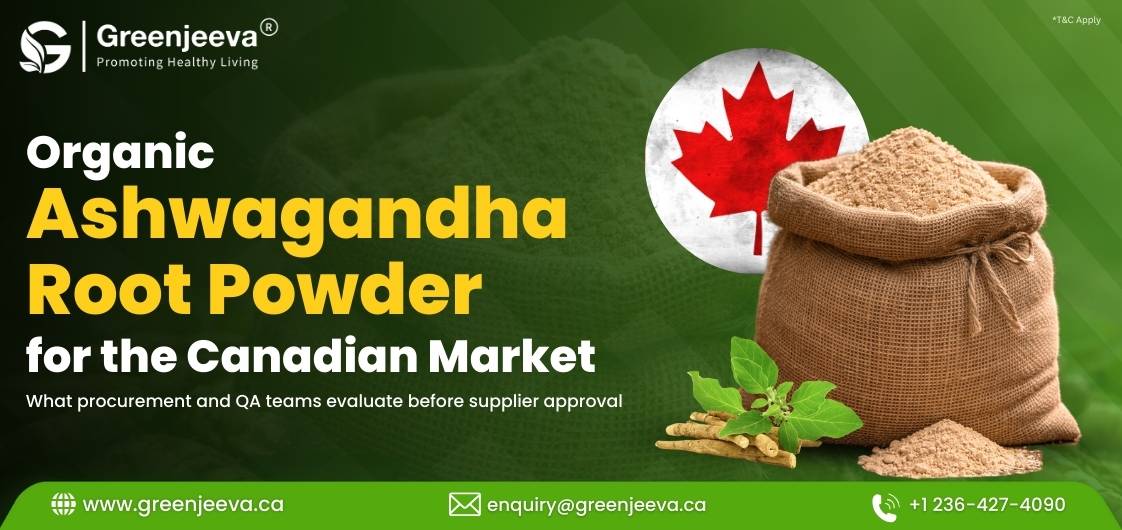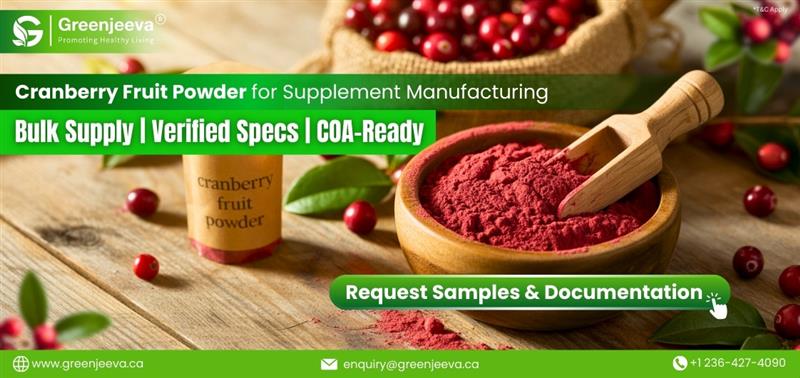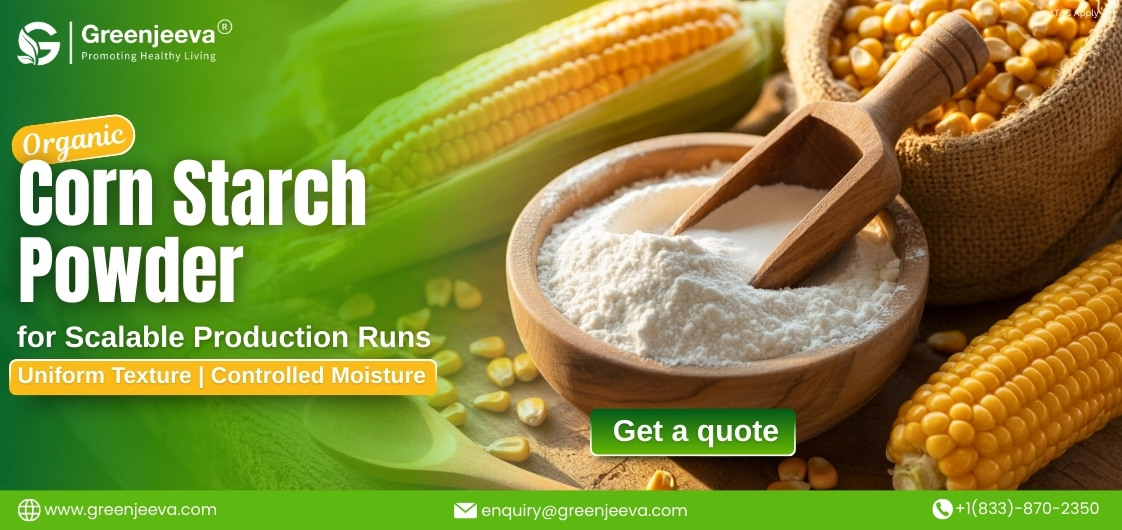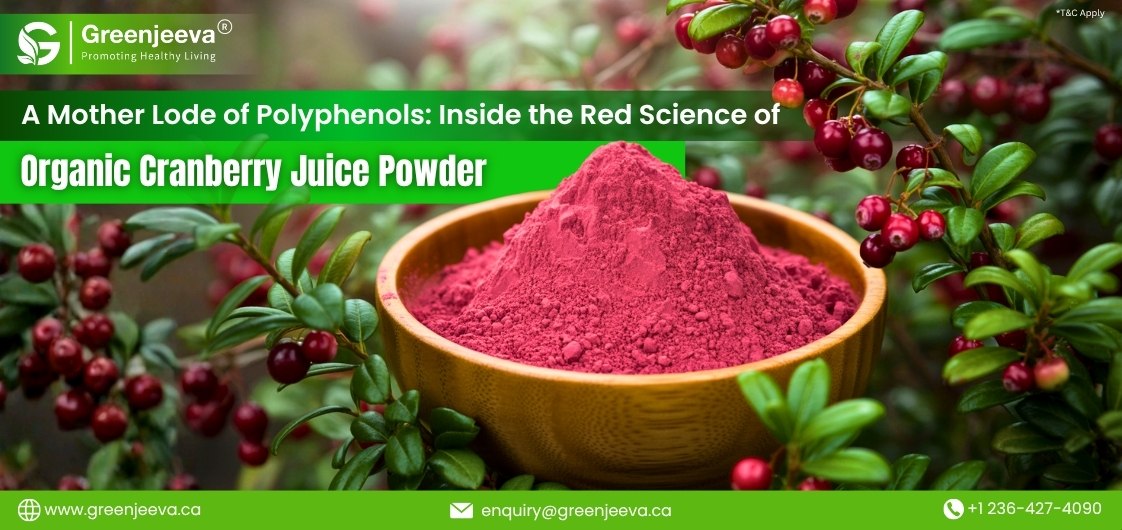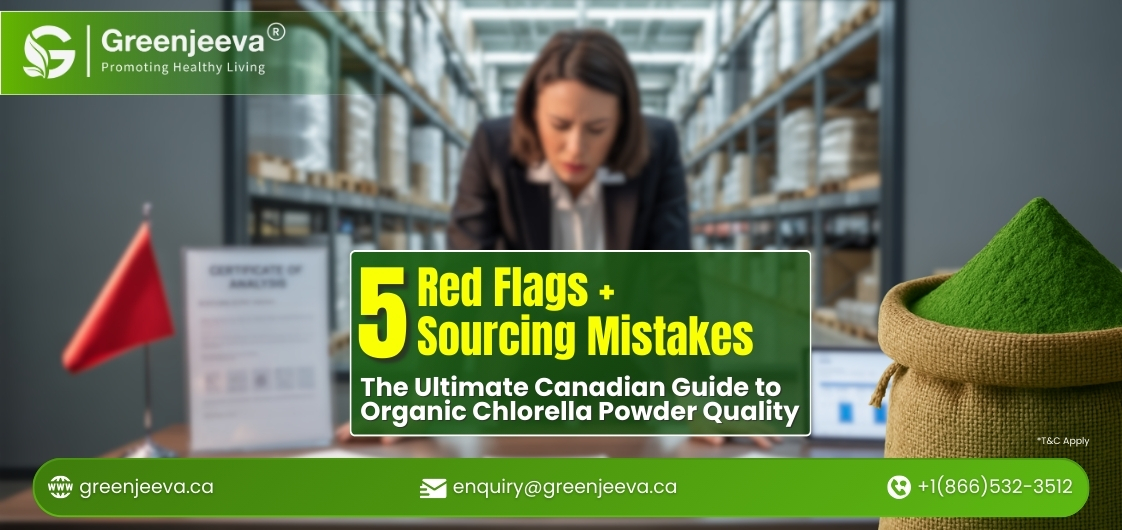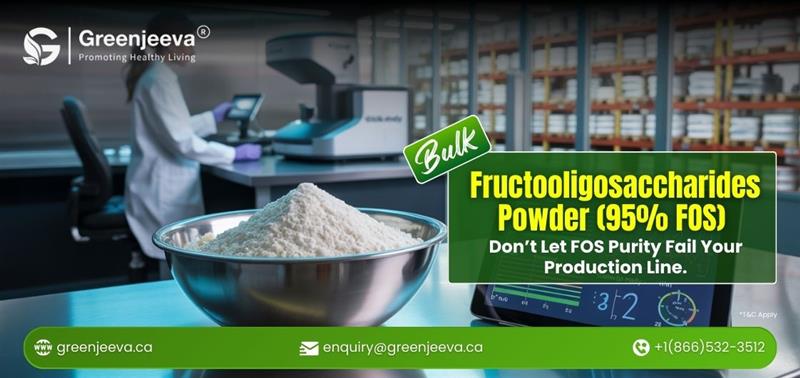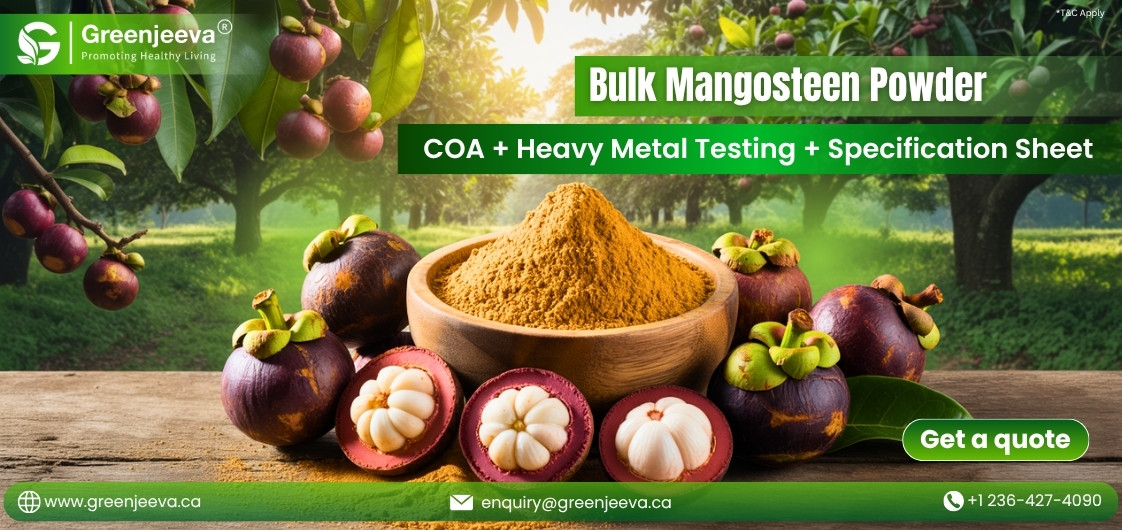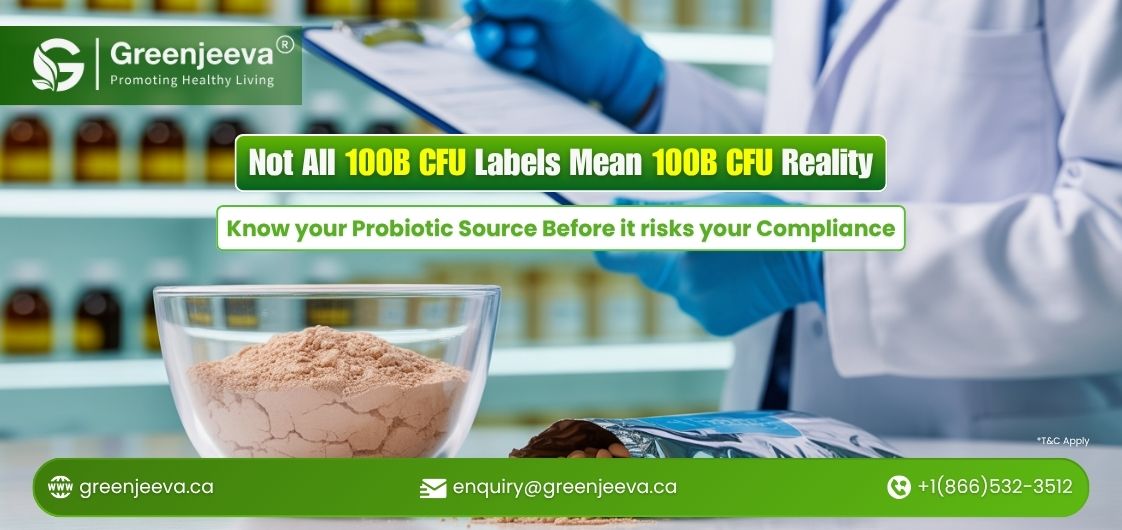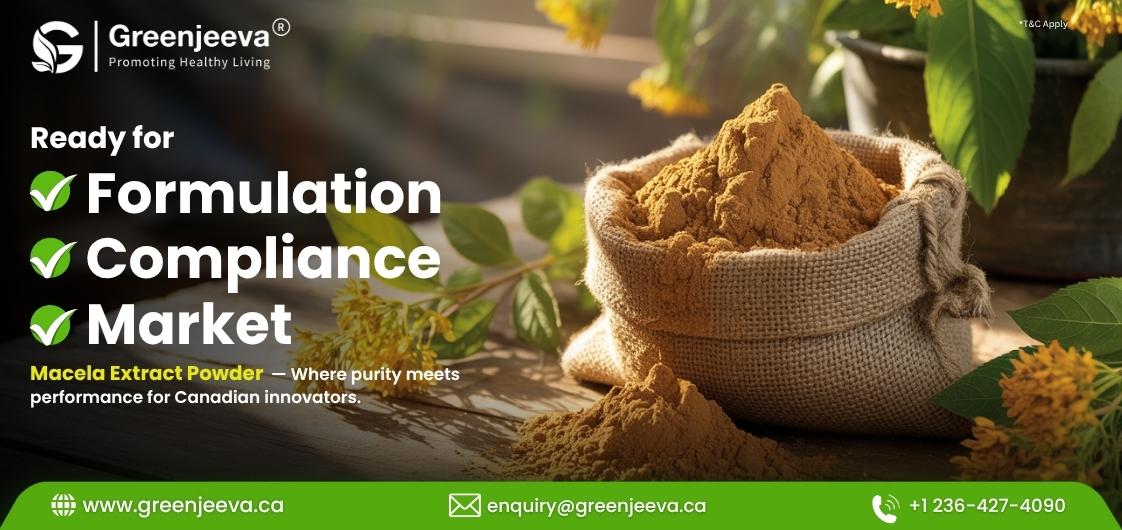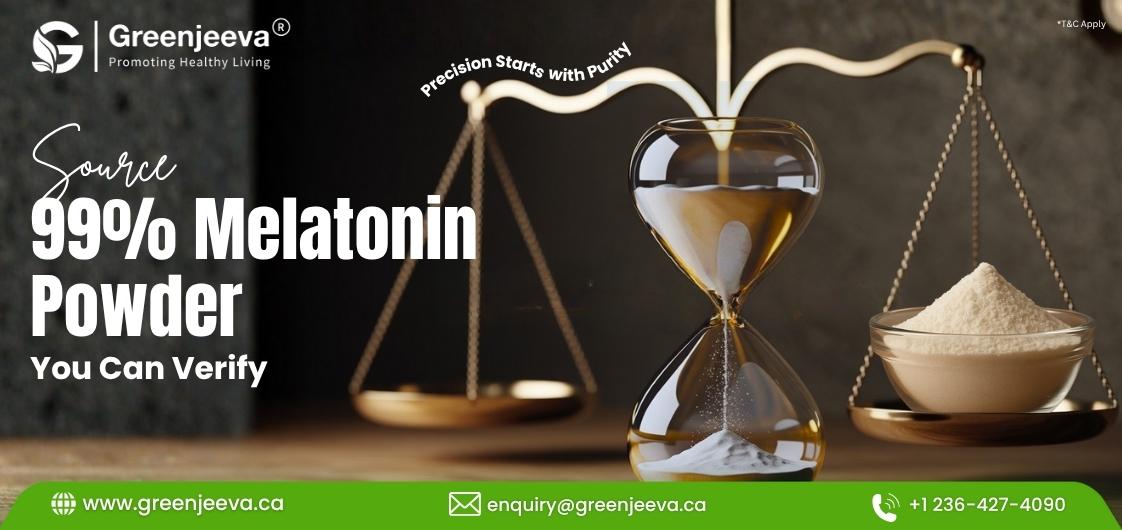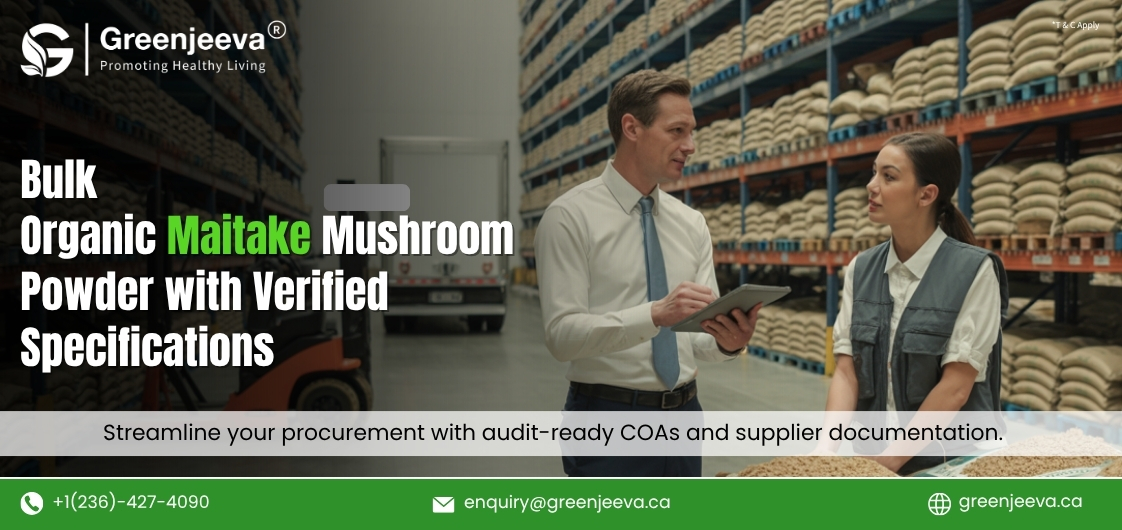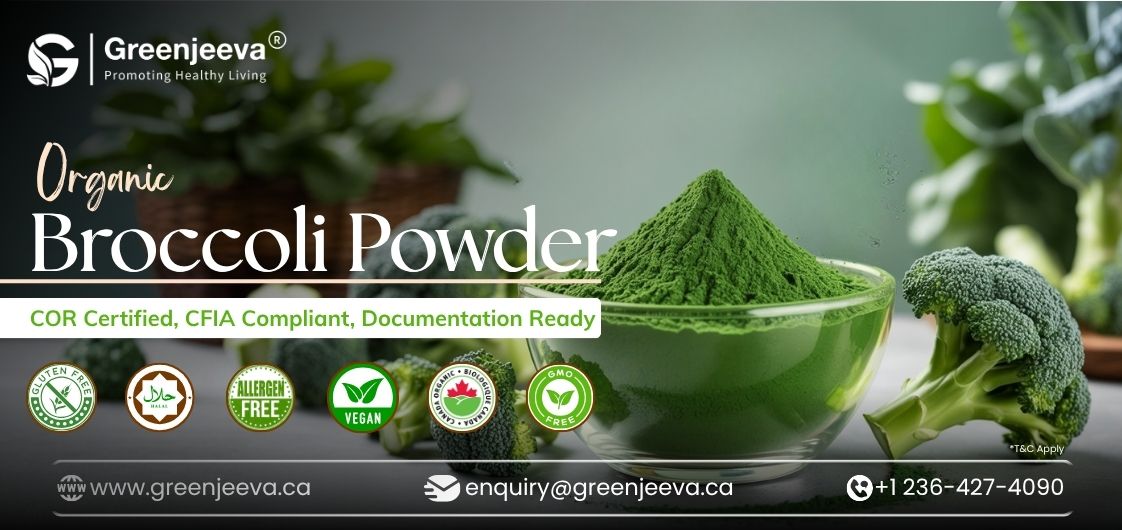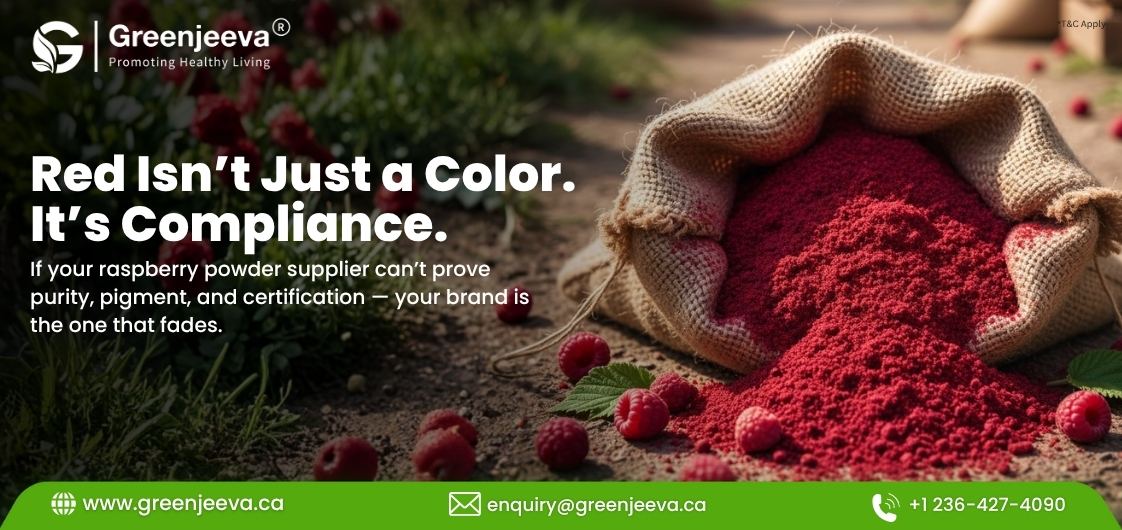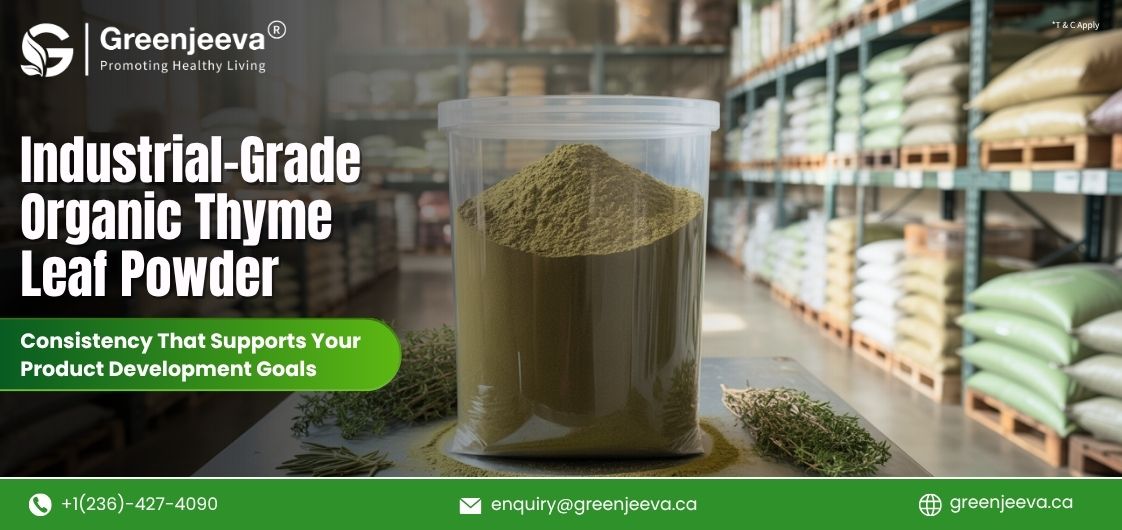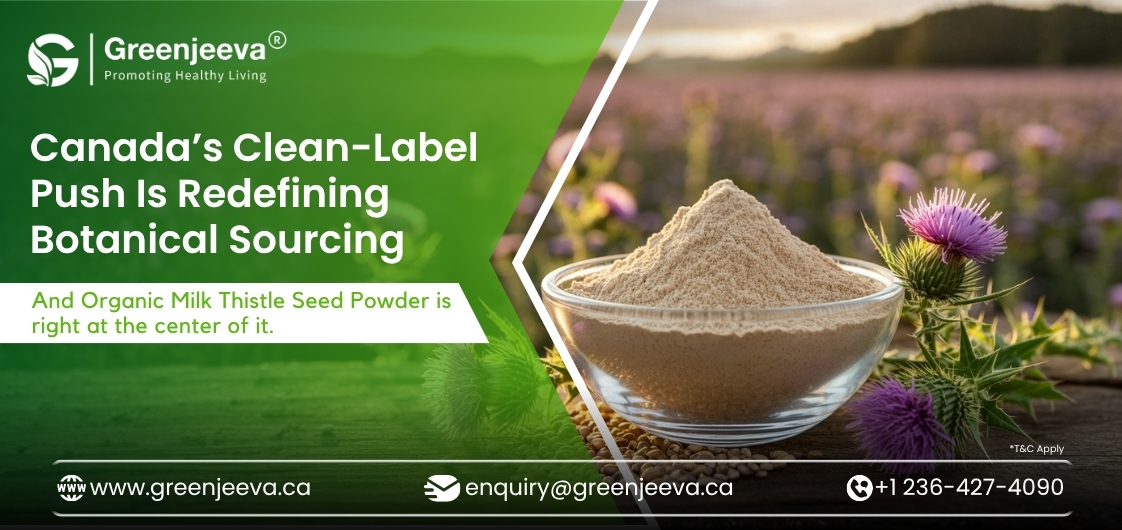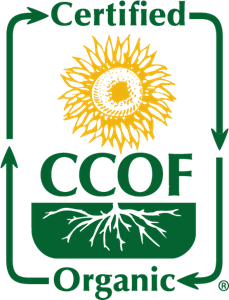Walk down any pet aisle in Canada today and you’ll see the same story playing out—shorter ingredient lists, bolder “organic” labels, and a lot more scrutiny from pet parents. Behind the scenes, that shift lands on sourcing teams, formulators, and R&D desks who now need ingredients that tick every clean-label box without slowing down production. One that’s gaining attention is Organic Lemon Juice Powder—a citrus-based option that feels familiar to consumers yet works hard in formulation and supply planning.
Below is an in-depth look at how this powder fits into the pet nutrition industry, what decision-makers need to know before sourcing, and where opportunities lie for bulk supply.
What Is Organic Lemon Juice Powder and How Is It Produced
Organic Lemon Juice Powder is a dehydrated form of lemon juice concentrate processed into a free-flowing powder.
Industrial production usually follows two methods:
– Spray drying: Lemon juice concentrate is combined with carriers like maltodextrin or gum arabic to stabilize flavor compounds and reduce stickiness.
– Freeze drying: A slower process that produces a more “fruit-only” product with minimal carriers but at higher cost.
For clean-label positioning in pet treats or chewables, sourcing teams often request carrier-free or minimal-carrier grades. The choice between spray-dried and freeze-dried formats depends on budget, label priorities, and desired functional properties.
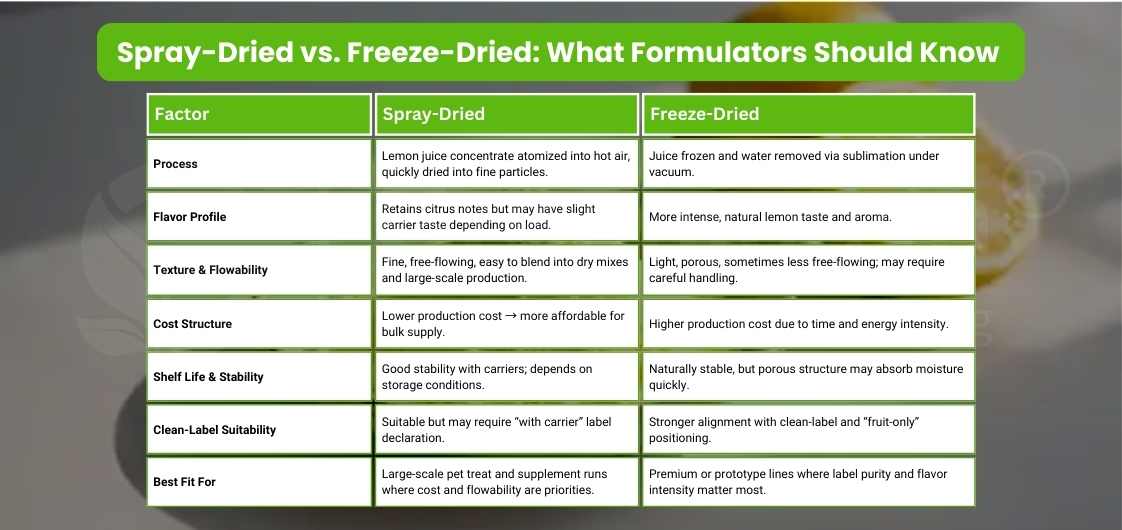
What Properties of Organic Lemon Juice Powder Matter for Pet Food Formulators
Procurement and R&D teams should evaluate measurable attributes before approving bulk Organic Lemon Juice Powder for production.
Key considerations include:
– Acidity profile: dominated by citric acid, which influences flavor sharpness and pH balance in formulations.
– Moisture content: typically below 6%, ensuring flowability and longer shelf life.
– Bulk density: impacts blending performance in dry formulations.
– Microbial limits: critical for pet applications where safety compliance is closely monitored.
– Carrier content: affects labeling and final taste profile.
These properties directly shape formulation efficiency, product stability, and how consistently the powder integrates into dry blends, extruded treats, or chewable bases.
How Do Pet Nutrition Brands in Canada Use Organic Lemon Juice Powder
Applications for Organic Lemon Juice Powder extend across multiple product formats in the Canadian pet industry.
– Dry treats and biscuits: adds natural citrus notes while supporting dough consistency.
– Chewable supplements: improves palatability and masks base material flavors.
– Powdered mixes and toppers: delivers a natural flavoring option with good dispersibility in water.
– Functional snack prototypes: combined with botanicals or protein powders for R&D trials in emerging clean-label lines.
Its role is rarely about nutrition claims — instead, it supports sensory appeal, process consistency, and compliance with clean-label positioning.
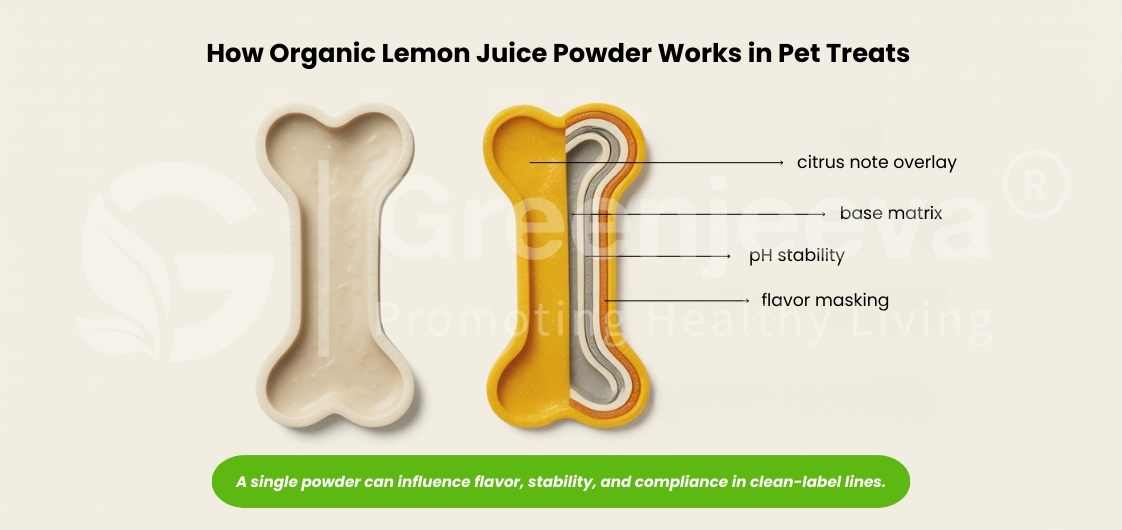
What Compliance Checks Should Procurement Teams Prioritize
Due diligence is essential before approving a supplier for bulk supply of Organic Lemon Juice Powder.
Canadian manufacturers generally review:
– Organic certification: must be valid under the Canada Organic Regime or an accepted equivalency program.
– COA and batch testing: moisture, ash, citric acid content, microbiological profile, heavy metals, and pesticide residues.
– Non-GMO status: increasingly requested for global and Canadian clean-label markets.
– Allergen reports: critical for regulatory submissions and consumer confidence.
– MSDS/SDS and traceability documents: required for plant operations and audits.
These checks ensure that pet food formulations meet both regulatory and market-facing expectations.
What Should Buyers Know About Bulk Procurement and Wholesale Pricing
Bulk Organic Lemon Juice Powder sourcing involves variables that affect pricing and availability.
Factors influencing cost:
– Processing method: freeze-dried options carry higher costs but support cleaner labels.
– Carrier presence: powders with maltodextrin are often less expensive but may limit “100% fruit” claims.
– MOQ and logistics: organic-certified lots often have higher minimum order quantities; lead times can be longer.
– Seasonal harvest cycles: citrus harvests influence raw material costs and supply stability.
Procurement teams in Canada often balance wholesale pricing structures with the need for reliable supply, particularly when scaling up new product launches. Building contracts with multiple Organic Lemon Juice Powder suppliers in Canada can help mitigate seasonal risks.
What Lesser-Known Details Add Value for Pet Nutrition R&D
Some lesser-known aspects of Organic Lemon Juice Powder can provide strategic value for R&D teams.
– Carrier choice alters flow and dispersibility: maltodextrin-based powders are easier to handle, while gum arabic or tapioca carriers change bulk density and solubility.
– Shelf life extension in blends: low-moisture powder can reduce water activity in multi-ingredient dry mixes.
– Regulatory consideration: reconstituted juice-based powders may fall under additional labeling standards; suppliers should clarify compliance positions early.
– Formulation synergies: pairing lemon powder with natural stabilizers such as seaweed-derived hydrocolloids is emerging in Canadian R&D for plant-forward pet products.
These details influence both pilot trials and long-term scaling decisions in the pet food sector.
How Is Demand for Organic Lemon Juice Powder Shaping the Canadian Market
The Canadian market for Organic Lemon Juice Powder is supported by broader clean-label and functional trends in pet nutrition.
– Rising demand for non-GMO and organic inputs in treats and supplements is expanding bulk supply requirements.
– Pet owners increasingly scrutinize ingredient lists, driving formulators to replace artificial acidulants and flavors with natural fruit-based powders.
– Emerging R&D in functional snacks and toppers integrates citrus-based powders with protein and botanical ingredients.
For sourcing heads, this translates into opportunities to secure wholesale Organic Lemon Juice Powder at scale, especially when aligned with long-term clean-label pipelines.
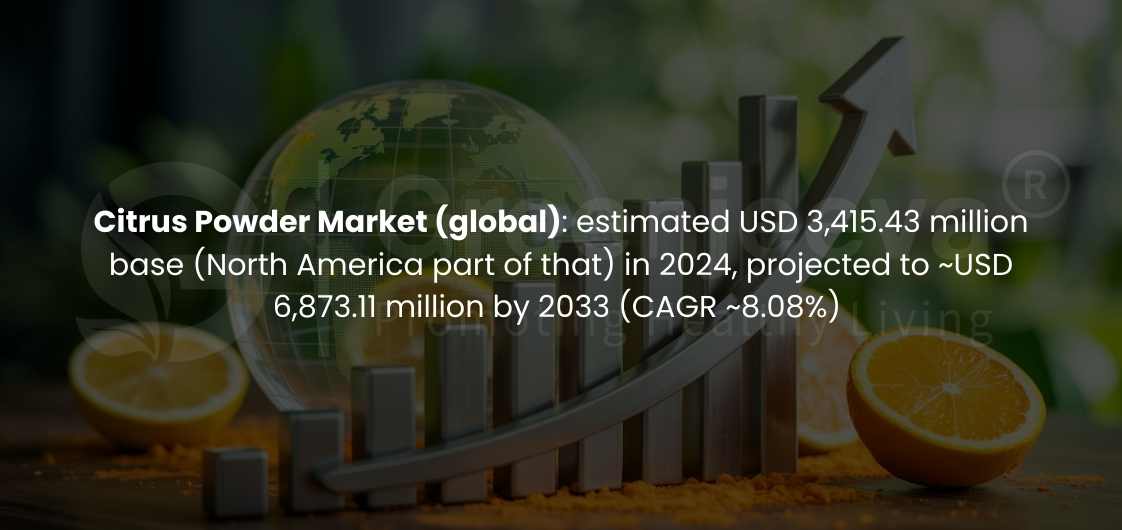
Conclusion
Organic Lemon Juice Powder has moved beyond beverage and human supplement lines into the pet food sector, where it serves as a clean-label flavoring and functional ingredient. For Canadian procurement managers and R&D teams, the ingredient presents both opportunities and considerations: balancing processing method, carrier use, cost, and compliance with strict organic and non-GMO standards.
As demand continues to expand, manufacturers that establish reliable supply partnerships and document-heavy sourcing protocols will be best positioned to meet both regulatory requirements and market expectations.
Green Jeeva Canada supports manufacturers, formulators, and procurement teams with bulk Organic Lemon Juice Powder backed by certifications, documentation, and supply chain reliability. If you are looking for a bulk Organic Lemon Juice Powder supplier in Canada with wholesale pricing, free sample, technical documentation, and clean-label options, reach out today to request samples and specifications.
Disclaimer: This article is intended for educational and industry insight purposes only. It does not provide medical advice or prescribe usage of ascorbic acid powder for health-related conditions.


